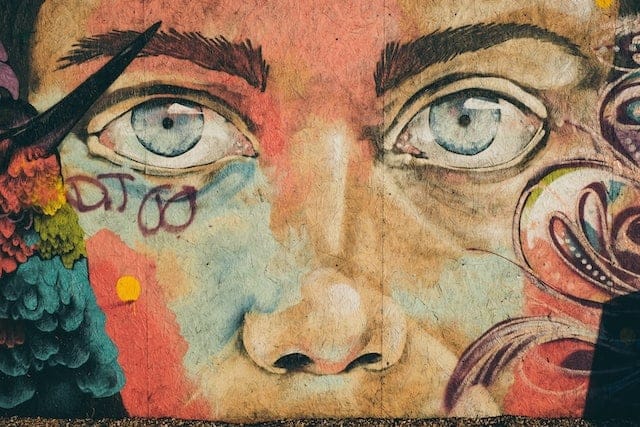








Existential Crises
As we get older, we begin to ask ourselves questions, questions that were once unimportant but become significant over time. These wonderings percolate within us, and the process can lead to disturbances, creating what some might call negative emotions, but which might otherwise be called existential dread. This kind of despair occurs when we feel uncertainty about life. This can result in existential anxiety, existential depression, and even suicidal thoughts due to crises, sometimes called ‘midlife crisis’. But people can experience all types of existential problems, at any time in life.
The Midlife Cliché Or Is It?
Because of the internal struggle, individuals feel an almost irrational compulsion toward change in significant areas of their lives. For instance, they may experience dissatisfaction in their career, or marriage – the latter of which can lead to infidelity, or the breakdown of a longstanding marriage. Indeed, even though it may be a cliché, there is much research into alternative relationship styles that are borne out of discontent and crises. Does it have to be such a struggle though? Are we all doomed to face this rite of passage and suffer anxiety and depression? Or might we take a positive approach to minimise the kind of thing that often leads to an existential crisis, by taking a measured approach that sees us navigate the (inevitable?) fog?
No Answers...
How might one interrogate life and its nebulous gravity in a way that quells the chaos and leaves us feeling held and contained, rather than as though we’ve fragmented into all quadrants of the multiverse, never to be whole again? At this juncture, dear reader, I owe you an apology. I don’t profess to have the answers to this big question, but I did come upon a question that might assist in the struggle, or maybe help to minimise and prevent it altogether. The question I will ask you offers a turning point, it intends to bring profound understanding of yourself, so you can go from what might become a meaningless life to realising your purpose in life. It’s hoped that by learning about the parts of ourselves that are hidden, we might begin to play with them, maybe tease and reshape them and accept those same parts anew, gaining some wisdom and peace along the way, until gradually one day we feel a kind of integration that is simply, and beautifully….enough.
...But A Useful Question
This idea is not going to ease you in because the problem described is itself complex and multifarious. For this reason, the question I will ask of you is suitably intended to throw you into the deep end, not aiming to simply skim the surface of your psyche, but instead traverse your depths, to glimpse your soul and learn who you are, and who you are meant to be. Because it is this very disparity that often leads to disillusionment and discontent. The question posed here is a useful one and asks us to think about something we, as a society, are often discouraged to think about, because apparently it is frightening. And yet, we see it, we hear about it, we experience it as bystanders, and still, we refuse to own it and our own inevitable fates. This article thus asks you to reflect on your death, by asking: What must I do to have really lived life?
What's The Answer?
Do not rush to answer this question with superficial material whims, or to do yourself injustice by answering it with little real thought or effort. Ponder it, reflect on it in earnest, this means thinking about what is being asked of you. But for reflection to be of real value, we must also respect it enough to act on it. So do take some time, in fact, purposefully dedicate time to this activity, sit in a peaceful place and be present to the question, you owe your Self and life at least that. Then, perhaps write some thoughts down, flesh it out, put some meat on the bone, and learn what it is that lights you up. Existential therapy can help you to come to your answers.
But for now, imagine yourself standing in a garden, serene and peaceful, it’s a crisp spring day, you feel the cool air and appreciate the slight warmth of the sun. You’re approaching a stone wall; it has an inscription: “here lies…*your name*…”. Yes, dear reader, you are no longer here, alive, or at least in the conventional way…so what is it you must have done to have truly lived?
Own Your Fate
This is your chance now, to be the arbiter of your destiny. Perhaps being asked to think about your death, and therefore, life, in this focused and deliberate way is a second chance; a life event. But only if you are truly wishing to learn, and grow from where and who you are, right now, this minute. In fact, in the moments since you started reading this article, to this very millisecond, you may have begun a journey of change. Or, this may be just another article you read and forget. But ultimately it’s your choice and at the very least, you have to own it. So, I ask you once more…what must you do to have truly lived?
- Why Is Suicide So Prevalent In KPOP? RIP Moon Bin
- PTSD: Case Study of Thomas Shelby
- Paedophilic Obsessive-Compulsive Disorder (POCD) I
- The Value Of Confronting Self-Doubt As A Psychotherapist
- What Happens When Trauma Is Ignored, Vs When It's Not
- A Warm Welcome From Phinity Therapy
- Rehanna Talks Issues
- Rehanna Discusses Phinity Services
- The HEALTHIER WAY To Grieve
- What Your THERAPIST'S TITLE REALLY MEANS!

- Kaplan Williams, S. (1980). Jungian-Senoi Dreamwork Manual [Review of Jungian-Senoi Dreamwork Manual].
- Metcalf, E. (2012, November 30). How to Get Out of a Midlife Crisis. WebMD; WebMD. https://www.webmd.com/men/features/mens-midlife-crisis
- Rogers, C. R. (1967). On Becoming a Person: A Therapist’s View of Psychotherapy. London Constable.
- Sheff, E. (2014, July 22). 7 Different Kinds of Non-Monogamy | Psychology Today. https://www.psychologytoday.com/gb/blog/the-polyamorists-next-door/201407/7-different-kinds-non-monogamy

